- Home
- Anne McCaffrey
Maelstrom Page 12
Maelstrom Read online
Page 12
No Murel! Sky said. Then, No whales.
He was right. Light from the surface suddenly replaced the hunting shadows looming above them. Something else was there for a moment, blocking part of the view, but they couldn’t tell what it was except for more whirling debris and bubbles. No blood, though. No . . . scraps.
Ronan was startled from that gruesome thought by something gyrating past them, almost taking the fur from his skin as it whirled wildly toward the ocean floor.
Below, the faint glow brightening the murk had turned into a spinning column of clean water beaming with light as if from fire at its core.
A speck of darkness was silhouetted against it.
Murel? he called.
Sky’s reactions were quicker. That looks like fun, Murel! Otters like fun! Watch out! Here comes Sky!
The otter streaked past in a brown blur and plunged into the center of the column.
Hey, wait! Ronan protested, and not to be outdone by the daredevil otter, plunged after him, diving ever downward. The light blinded him as the spinning water sucked him into its vortex.
MUREL? SIS? YOU okay? At some point while whirling around in the waterspout, Ronan had lost consciousness. He awoke lying next to his sister on a hard surface. He had the feeling they were enclosed, and when he sent a sonar probe, it told him he and Murel were surrounded by walls. Not sea grotto, but real walls, like the ones in their cabin.
Ro? Her thought-voice was shaky and scared. Am I—did the whales bite off a very big piece of me? It doesn’t hurt yet.
The sonar probe had revealed an entire seal lying next to him, not a maimed one, so he felt safe saying, I don’t think the whales even touched you. This weird underwater waterspout typhoon thingy pulled you out from under them. I dived in after you.
Thanks.
No problem, really, any time. I’m glad we were in seal form, though, because if we’d been human I’d have wet my pants.
You’re not the only one! She stirred, sat up. Where are we?
I dunno, but not to worry, Da is on his way.
How?
I called him. Guess he wasn’t too far off when he heard me. Or maybe he heard you first. Anyway, all we have to do is sit tight and wait. He’ll find us.
I just wish I knew where we were.
He rose too and began to explore their confinement. Small, maybe ten by ten, bare. And it felt made. Like man-made, only what man would make something down here? He’d read about shipwrecks and sunken vessels on other planets, but Petaybee had yet to develop an active shipping industry.
Petaybee . . . well sure.
Duh, he said. The planet saved us. It didn’t want the whales to eat you so it made this waterspout that sucked us into it.
And into a room? Murel was exploring too. Is there a door?
Do we want to know what’s behind it if there is?
As they spoke, one of the walls grew lighter and brighter. It also became transparent, and soon it popped out of existence altogether. A tall sleek presence stood in its place, one fish in its mouth and one in each front paw.
Are you hungry? it asked.
Who are you? both of them asked. But just then Sky scampered in front of the larger creature, which actually looked like an exceptionally big otter.
She’s one of the deep sea otters, Sky told them. His paws each held a sea urchin and he still seemed to be chewing. They made the waterspout for Murel so the whales couldn’t eat her.
Thanks, Murel told the big otter. I bet you, uh, folks are getting tired of saving selkies. First our da and now us.
Yeah, Ronan added, we’re glad to see you’re okay. We were afraid the volcano got you.
Deep sea otters like volcanoes, said the deep sea otter, sounding a lot like Sky, except somehow more feminine. We like living under them.
Must get hot, Ronan said.
In spite of being grateful to the deep sea otters, Murel couldn’t help feeling this tall creature was in disguise and mimicking Sky. She was an otter impersonator, Murel was sure. The so-called deep sea otters who had rescued Da hadn’t talked like Sky at all. And though they never showed themselves, they didn’t “feel” like otters. Besides, otters were mammals, and it wasn’t scientifically possible for real otters to survive totally immersed in water all the time, not to mention under volcanoes.
Your father is well? the otter asked. Most unotterly again. The otters she knew, Sky included, always assumed everyone and everything was well until clearly proven not to be.
He’s looking for us, Ronan told her. He’ll be here soon and can thank you for saving him and us as well.
Have a fish, she said, again proffering the ones in her paws.
Thanks again, Murel said, and snapped it down. She’d been through quite a bit and, otter impersonator or not, she needed to keep up her strength.
You may go out to him when he comes for you, but for now you seals must stay with deep sea otters, she said, most of her speech again sounding unotterly. Then she added, Whales, you know.
Murel’s skin shivered all down the length of her spine. I know, she said, accepting a second fish that had somehow appeared in the paw when the first one vanished. Are we inside your city now? Didn’t it get destroyed during the eruption?
No. Our city is designed to withstand the living force of the planet. To us and our habitat, volcanoes give life. And yes, you are safe in our city now.
She means their den, Sky said. The concept of a city was still not one he understood. Kilcoole was the biggest settlement on the northern pole of Petaybee and it was still little more than a Nakatira-cube-enhanced village. It is a big den. Hundreds of holes. These deep sea otters are very big, so they cannot all fit in one hole.
Though the twins hadn’t felt as if they were floating inside the room, it occurred to them that they were still in the depths of the sea and that water—or something similar—was all around them. It was very clear. All they had to do was to think about swimming and they could swim instead of staying on the floor. What was that all about?
The tall otter, who stood on her hind paws during their conversation, stepped aside, inviting them to leave their temporary harbor.
They were in the strange city they had seen only from the outside before. The multicolored lights streaming from the top of the tallest buildings to the bottom of those at sea floor level were less apparent inside, where you could only see a few at a time, glowing first in one place then another. They looked more random than they had from outside the protective bubble that cloaked the city in what seemed to be a protective force field. The first time the twins had seen it, Ronan tried to swim into the city from several angles but hadn’t been able to get inside. Our security system, the tall otter explained, picking up his thought.
I didn’t realize otters had them, Ronan said.
Most do not. You are bright youngsters. It will not have escaped your notice that we are rather more evolved than other varieties of otters.
What is evolved? Sky asked.
More developed, Murel told him, unsure how to further explain it with images he would understand. Like living in cities instead of regular dens.
Regular dens are nice, Sky said, puzzled. Otters can build new ones when they get messy or filled with water or if we want to go somewhere else.
But although making dens is natural for river and sky otters, Murel said, these otters use things that are not exactly natural.
Hah! Sky said. Sky otters fly in sky machines that are not exactly natural, and they still swim, walk, run, and slide. Sky otters are evolved too.
And evolving more all the time, Murel agreed. Besides, sky otters are real and I think this is all a dream. Ronan and I used to share dreams when we were little. This can’t be happening. Some of those other big otters are walking around the city and some of them are swimming. It doesn’t make any sense. I fell asleep in the water and then I dreamed the orcas were after me and that this big waterspout pulled me away from them at the last minute and I thought I woke u
p, but I’m still dreaming, really.
If I’m in the dream too, Ronan replied, you’re not going to believe me if I tell you this seems to be pretty real to me.
It is good that you feel that way, their hostess said. You will remember none of this when you return to the surface, so it will be much like a dream that way.
I didn’t realize otters dreamed, Murel said.
Not to be left out, Sky said, Sky otters dream! then asked, What is dream?
Stories you see after you’re asleep, Murel said.
Oh, yes, sky otters do that. So do river otters. I do not know about the sea otter cousins but if river otters dream, sky otters dream, and deep sea otters dream, then sea otters must dream too.
Ronan asked the tall otter, Do you have a name? And why do your people—otters, I mean—like living near volcanoes so much?
You may call me Kushtaka, she said. We live near volcanoes for the power of their life force, for the food they provide, and because we have always done so.
Kushtaka? Murel asked. But that’s the name for— She decided against finishing the thought. Kushtaka was an archaic word brought to Petaybee by Eskimo and Indian ancestors who believed there were whole communities of otters, called Kushtaka, that could steal souls. If she had been in human form at that time, looking into this Kushtaka’s cool appraising gaze would have sent goose bumps up her arms.
Yes? Kushtaka asked.
Er—it’s another name we have for otters. Not specific otters, I mean, just otters in general. I thought deep sea otters, since you seem quite different from your smaller cousins, might be called something different. But then, you’re the first one we’ve ever met so we have no way of knowing really.
She was aware that she was chattering on and on, her thoughts tumbling over each other to keep her real thoughts and fears from surfacing. She wanted to ask a lot of things, but she was afraid if she did and learned the answers to her questions, the deep sea otters wouldn’t let her and Ronan leave. But then, well, Kushtaka had said they were going to wipe out the visitors’ memories of this place. That was probably what had happened to Da’s memories when they took care of him. Murel continued to feel very strongly that whatever these creatures were, they were not otters, Petaybean or any other kind. She wanted to ask why they were pretending to be, but that was rude since it amounted to calling them liars.
You use geothermals to power all of this? Ronan asked, looking around at the towering spires, the spiraling towers, the domes, the thousands rather than hundreds of what certainly seemed to be entrances or doorways. Glancing back, he saw that the room they had been in, the one in which the wall had dissolved rather than a door opening, also appeared to have a hole-shaped doorway, which seemed odd. Many of the doorways seemed open to lots of traffic, with other large otters swimming or walking around the city, some carrying food items, some carrying other less easily identifiable objects.
Where do you live, Kushtaka? Murel asked. Although she didn’t trust this creature, she felt they needed to make friends with her. After all, her folk had saved Da and now them. They certainly couldn’t be evil. Do you have— She started to think “a mate,” but then remembered that sea otters had casual mating habits so she continued, Any young still at home?
I have two young still living with me, she said. I did have a mate but he met with an accident and was killed. I do not intend to take another. Deep sea otters have their own mating customs, different from our smaller cousins.
Do deep sea otters ever mate with sky otters? Sky wanted to know. I have not mated yet, but soon I will need to do that and there are no other sky otters. I am the only one. Deep sea otters look interesting.
Kushtaka had no answer for a moment, then replied thoughtfully and with what Murel thought was a hint of humor, You are small, we are large. It would not work.
Maybe a small deep sea otter? Sky suggested, undaunted, but then he swam forward and dived into another hole and said, Come and see this, river seals! Deep sea otters have strange hunting habits!
With assent from Kushtaka, they followed their friend into a chamber that had no ceiling and no floor but a flexible device floating in the middle. It was aimed downward, toward a broad rift in the sea’s floor. Deep within it a volcanic vent emitted a cherry-red glow, but Murel thought that might be several leagues beneath them. Between them and the cherry glow, the rift blossomed with all sorts of plant and animal life.
Like a frog whipping out its tongue to catch a fly, the device shot forth a beam of light. Water wrapped around the beam, creating a waterspout, a concentrated whirlpool. The practical reason for this, when it wasn’t being used for rescuing selkies, became clear when it swirled back into the room with its waters full of shellfish, seaweed, and the sort of plant life they had seen before near the undersea volcanoes.
You use that to hunt? Murel said.
As you see, Kushtaka replied.
Don’t you ever leave your city for anything, then?
Occasionally, when it seems safe.
Oh! The sharks. I almost forgot. The reason we came here was to try to find you, once the sea otters told us you were still around. You see, some new people are coming and they brought the sea turtles with them, but their relatives also brought along sharks. I’m afraid they might eat you if they catch you, so we wanted to warn you about them.
What are sharks? Kushtaka asked, exactly mimicking the way Sky had asked the meaning of “dream.”
Mean! Sky answered immediately. And dangerous. Sharks are very mean with huge teeth and they always want to eat you.
And yet you escaped to warn us? Kushtaka said, sounding as if the idea that they would do so was an entirely alien concept to her.
They won’t eat us, Ronan said, more confidently than he felt. We saved them from dying of starvation on another world.
And they acknowledge this, these mean sharks? Do you think them trustworthy?
No way! Murel said. When Kushtaka looked puzzled, she tried to explain. Trustworthy is not the term I’d use for them if I happened to meet them in the open sea, but that’s not the case. We helped them and they know if they hurt us, they and their people might suffer.
Their people? Kushtaka asked.
Murel tried to explain. These sharks are special to some of the people who are coming, like we said. They’re sort of clan totem animals—the people think they have the spirits of their ancestors living in them and are here to protect and help them. That’s what the Honus, the sea turtles, are too. They’re the aumakuas of some of the other people.
Sky piped up again. The aumakua of river seals is the sky otter—me! Except this otter is not the ancestor—that means father’s father, to you deep sea otters who do not understand two-legged terms as well as this otter—of these river seals or even a blood relative. I hope to be the ancestor of many river otters soon, but Ke-ola’s people think I am the aumakua because I am good friends with the river seals and we help and protect each other.
It was a lengthy speech for Sky. It seemed to Murel he was learning quickly about their world and thought concepts. Well, why not? Otters were not stupid animals by any means. And Sky was particularly smart.
You speak of two-leggeds as if standing on two legs means human, Kushtaka said. Deep sea otters stand on two legs.
But you have otter legs—the right amount, Sky said. And your hind paws are flippered like those of the sea otter cousins. You cannot be real two-leggeds like Murel and Ronan.
What do you mean? They do not have legs at all. They have flippers.
Not always, Murel said. We are not the regular kind of seals. We’re selkies, like our father.
That means as soon as we dry off we turn into people with two legs and two arms, Ronan explained helpfully. Most of our lives we’ve been stuck on dry land or in space—you know what space is?
We know, Kushtaka told him without hesitation.
This otter is a space otter as well as a sky otter, Sky told her proudly. I am the first otter in space!
Not precisely, Kushtaka replied, half to herself. Sky didn’t catch her thought. He was preoccupied with a fish from the catch inside the hunting chamber and looked over at Ronan with an amiable expression consisting of wide eyes and chewing.
Murel, intrigued by the big otter’s remark, pretended she hadn’t understood it either. She was beginning to have suspicions, however—how could she not? So, how did you come to be deep sea otters? she asked, seemingly conversationally. Are your species one of Petaybee’s adaptive mutations—originally the regular kind of otters but for some reason specially adapted to live underwater and near volcanoes?
Mutations? No, we are not mutants, Kushtaka said with a hint of indignation.
No, no, Murel said hastily, I didn’t mean anything bad by that. We’re mutations ourselves—almost everybody on Petaybee is. The planet does it, see, so we can live here. Our grandfather and great-grandfather and our father too helped decide which original plants and animals belonged on Petaybee, but then a lot of those changed, so they could survive. Usually it takes a long time but on Petaybee it happens really fast. Take our mother, for instance. She came here when she was grown up and had traveled in space her whole life, but now that she’s been here a while, Petaybee has changed her so that she can’t go offplanet anymore.
We can only go because we’re still kids, Ronan added. The change doesn’t happen until you’re past puberty.
Kushtaka displayed no interest in that explanation at all. Instead she repeated, We are not mutants.
Murel decided finally to be direct and say what was on her mind. You’re not really otters either, are you? she asked.
Not always, Kushtaka admitted.
And let me guess, Ronan said, having shared his sister’s doubts about the deep sea otters almost since they first met Kushtaka. You haven’t always lived on Petaybee either, have you?
Always is an inexact term, Kushtaka replied.
I think this is the part where we ask to be taken to your leader, Ronan said.
I am the leader, Kushtaka said, then added curiously, Our otter shape has worked well for us until now. Other otters accept us as otters. What makes you think otherwise?

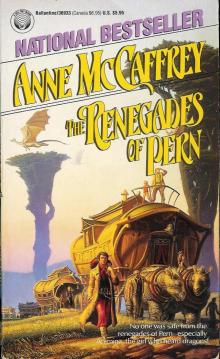 The Renegades of Pern (dragon riders of pern)
The Renegades of Pern (dragon riders of pern)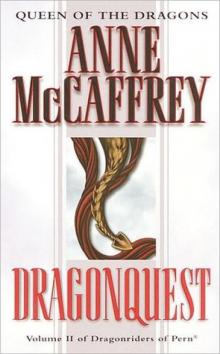 Dragonquest
Dragonquest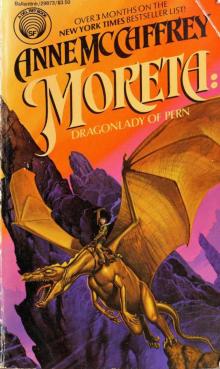 Moreta (Dragonlady of Pern)
Moreta (Dragonlady of Pern)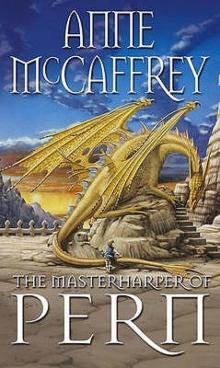 The Masterharper of Pern
The Masterharper of Pern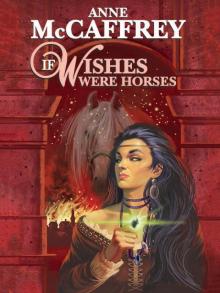 If Wishes Were Horses
If Wishes Were Horses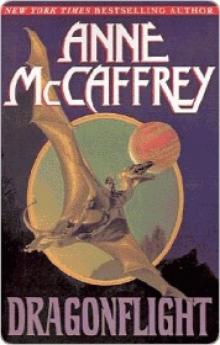 Dragonflight
Dragonflight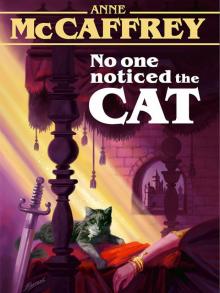 No One Noticed the Cat
No One Noticed the Cat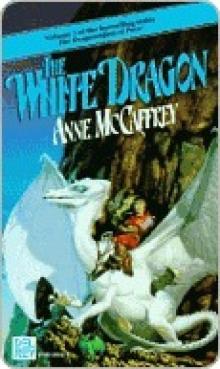 The White Dragon
The White Dragon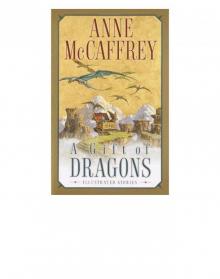 A Gift of Dragons
A Gift of Dragons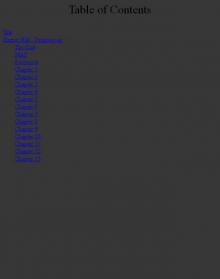 Harper Hall - Dragonsong
Harper Hall - Dragonsong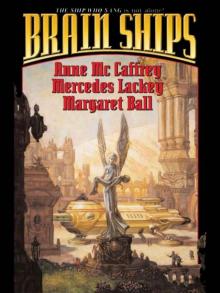 Brain Ships
Brain Ships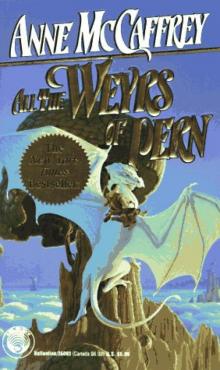 All The Weyrs of Pern
All The Weyrs of Pern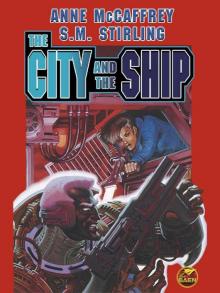 The City and the Ship
The City and the Ship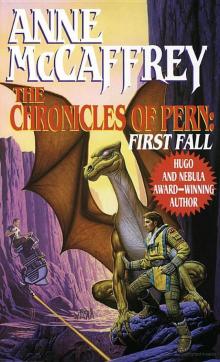 The Chronicles of Pern: First Fall
The Chronicles of Pern: First Fall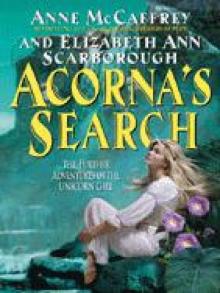 Acorna’s Search
Acorna’s Search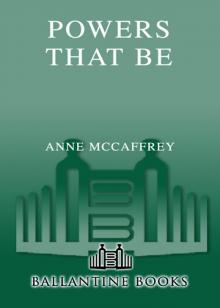 Powers That Be
Powers That Be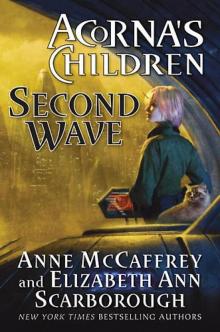 Second Wave
Second Wave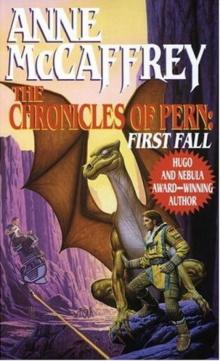 Chronicles of Pern (First Fall)
Chronicles of Pern (First Fall)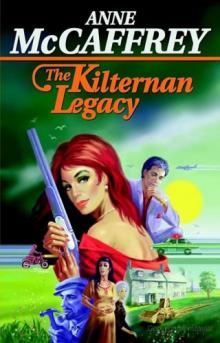 The Kilternan Legacy
The Kilternan Legacy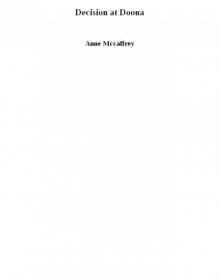 Decision at Doona
Decision at Doona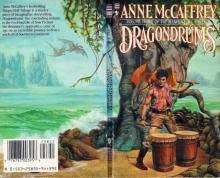 Dragondrums (dragon riders of pern)
Dragondrums (dragon riders of pern)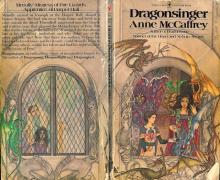 Dragonsinger (dragon riders of pern)
Dragonsinger (dragon riders of pern)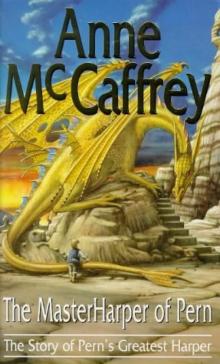 The Master Harper of Pern
The Master Harper of Pern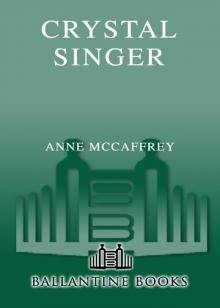 Crystal Singer
Crystal Singer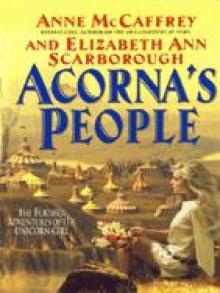 Acorna’s People
Acorna’s People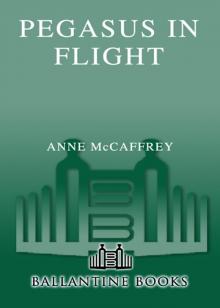 Pegasus in Flight
Pegasus in Flight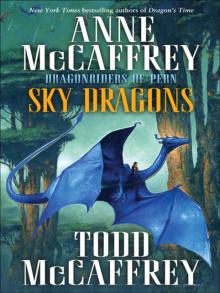 Sky Dragons Dragonriders of Pern
Sky Dragons Dragonriders of Pern Dragonriders of Pern 4 - Dragonsinger
Dragonriders of Pern 4 - Dragonsinger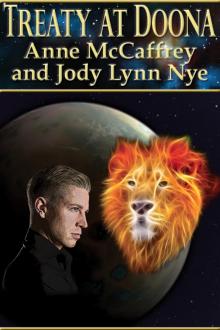 Treaty at Doona
Treaty at Doona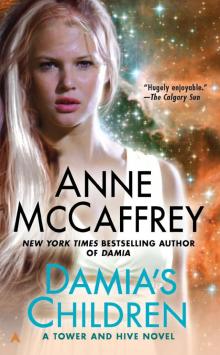 Damia's Children
Damia's Children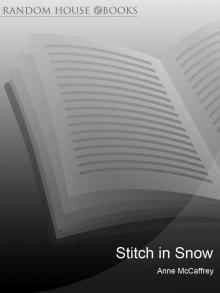 Stitch In Snow
Stitch In Snow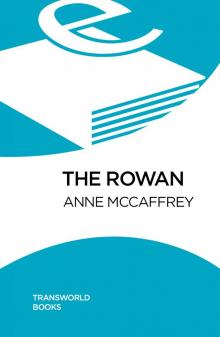 The Rowan
The Rowan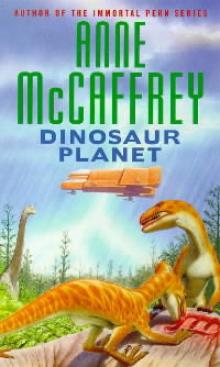 Dinosaur Planet
Dinosaur Planet The Year of the Lucy
The Year of the Lucy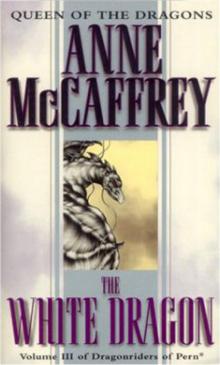 The White Dragon p-4
The White Dragon p-4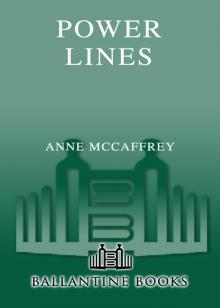 Power Lines
Power Lines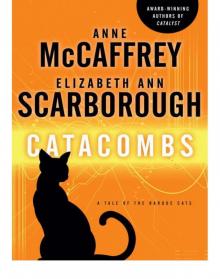 Catacombs
Catacombs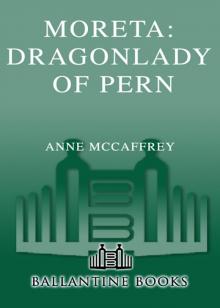 Moreta
Moreta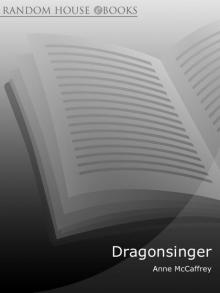 Dragonsinger
Dragonsinger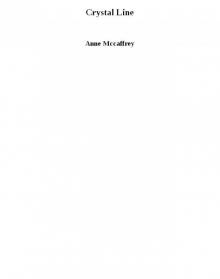 Crystal Line
Crystal Line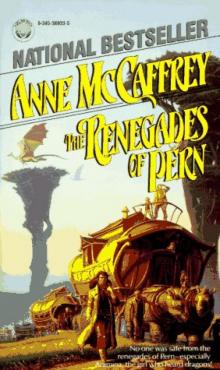 The Renegades of Pern
The Renegades of Pern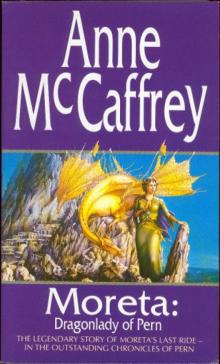 Moreta - Dragonlady of Pern p-8
Moreta - Dragonlady of Pern p-8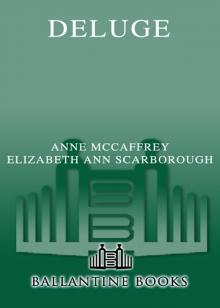 Deluge
Deluge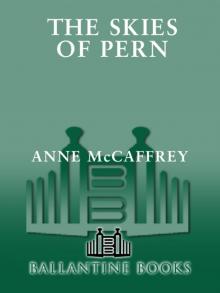 The Skies of Pern
The Skies of Pern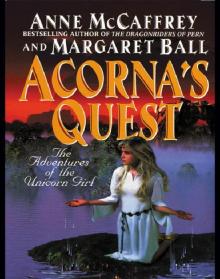 Acorna's Quest
Acorna's Quest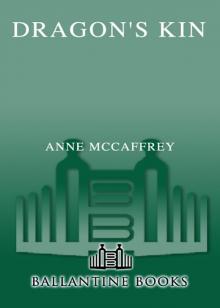 Dragon's Kin
Dragon's Kin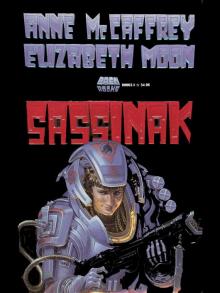 Sassinak
Sassinak![Crystal Universe - [Crystal Singer 03] - Crystal Line Read online](http://i1.bookreadfree.com/i1/03/31/crystal_universe_-_crystal_singer_03_-_crystal_line_preview.jpg) Crystal Universe - [Crystal Singer 03] - Crystal Line
Crystal Universe - [Crystal Singer 03] - Crystal Line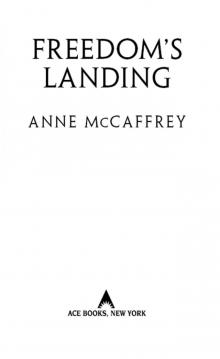 Freedom's Landing
Freedom's Landing Acorna’s Quest
Acorna’s Quest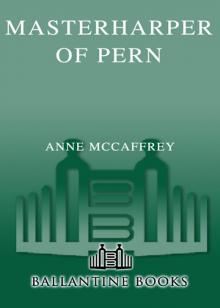 Masterharper of Pern
Masterharper of Pern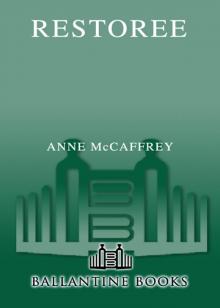 Restoree
Restoree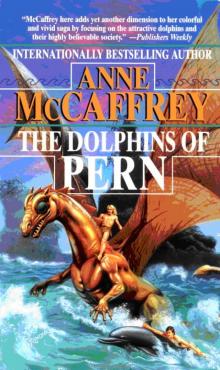 Dolphins of Pern
Dolphins of Pern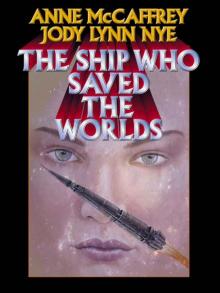 The Ship Who Saved the Worlds
The Ship Who Saved the Worlds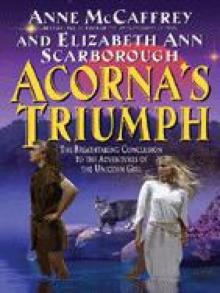 Acorna's Triumph
Acorna's Triumph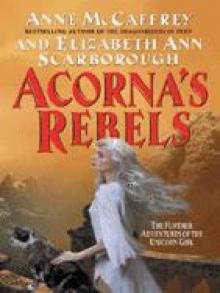 Acorna's Rebels
Acorna's Rebels![[Acorna 08] - First Warning: Acorna's Children (with Elizabeth Ann Scarborough) Read online](http://i1.bookreadfree.com/i1/04/06/acorna_08_-_first_warning_acornas_children_with_elizabeth_ann_scarborough_preview.jpg) [Acorna 08] - First Warning: Acorna's Children (with Elizabeth Ann Scarborough)
[Acorna 08] - First Warning: Acorna's Children (with Elizabeth Ann Scarborough)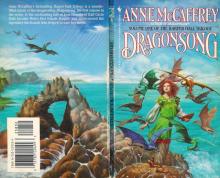 Dragonsong (dragon riders of pern)
Dragonsong (dragon riders of pern)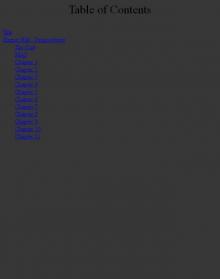 Dragonriders of Pern 6 - Dragondrums
Dragonriders of Pern 6 - Dragondrums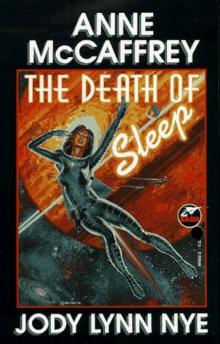 The Death of Sleep
The Death of Sleep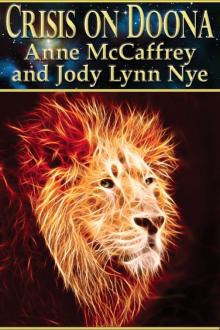 Crisis On Doona
Crisis On Doona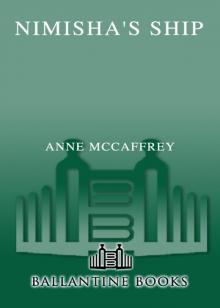 Nimisha's Ship
Nimisha's Ship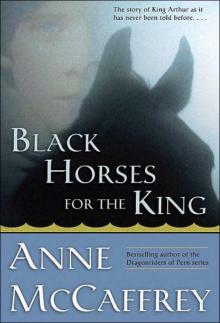 Black Horses for the King
Black Horses for the King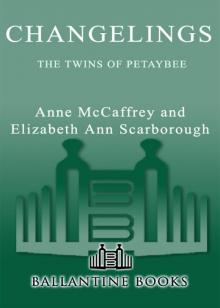 Changelings
Changelings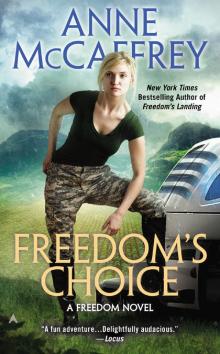 Freedom's Choice
Freedom's Choice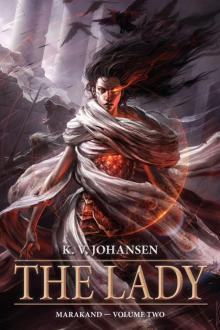 The Lady
The Lady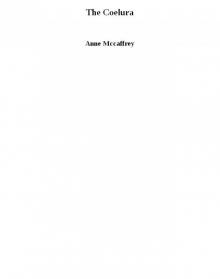 The Coelura
The Coelura Catalyst
Catalyst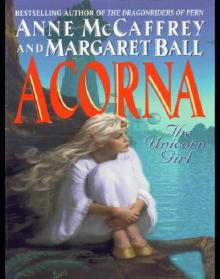 The Unicorn Girl
The Unicorn Girl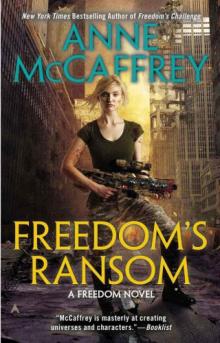 Freedom's Ransom
Freedom's Ransom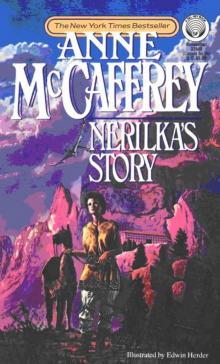 Nerilka's Story
Nerilka's Story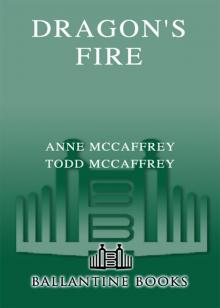 Dragon's Fire
Dragon's Fire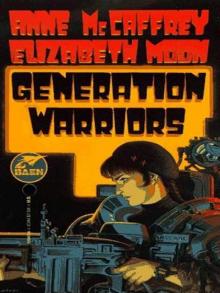 Generation Warriors
Generation Warriors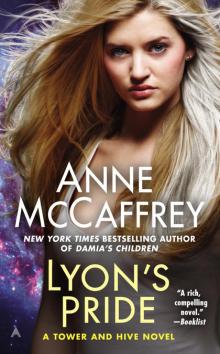 Lyon's Pride
Lyon's Pride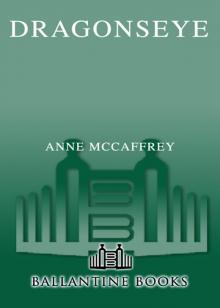 Dragonseye
Dragonseye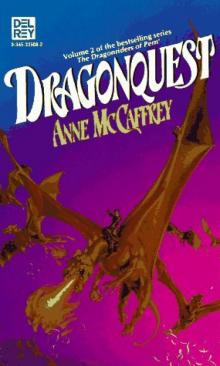 Dragon Quest
Dragon Quest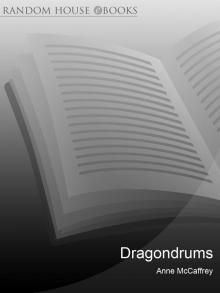 Dragondrums
Dragondrums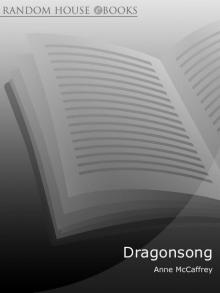 Dragonsong
Dragonsong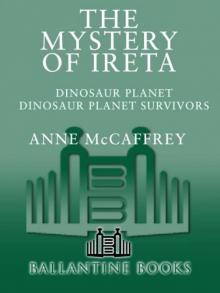 The Mystery of Ireta
The Mystery of Ireta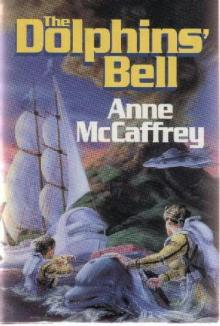 Dolphins' Bell
Dolphins' Bell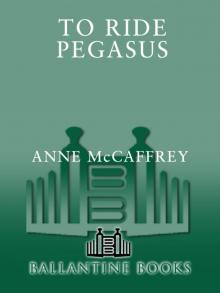 To Ride Pegasus
To Ride Pegasus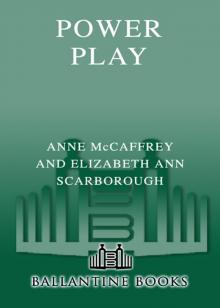 Power Play
Power Play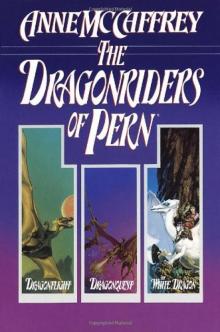 The Dragonriders of Pern
The Dragonriders of Pern An Exchange of Gifts
An Exchange of Gifts The Ship Who Sang
The Ship Who Sang Sky Dragons: Dragonriders of Pern
Sky Dragons: Dragonriders of Pern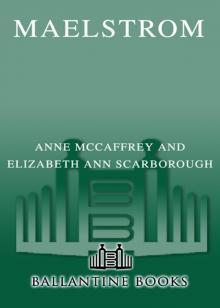 Maelstrom
Maelstrom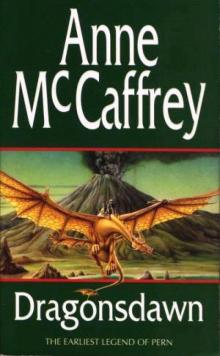 Dragons Dawn
Dragons Dawn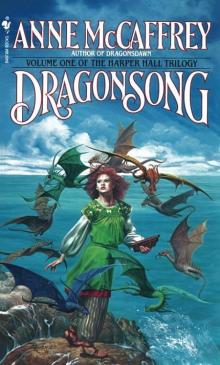 Dragon Song
Dragon Song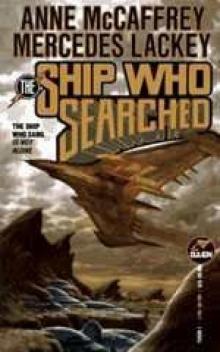 The Ship Who Searched b-3
The Ship Who Searched b-3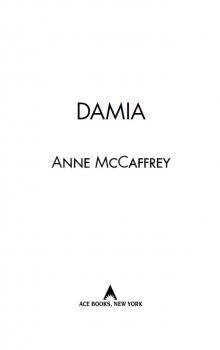 Damia
Damia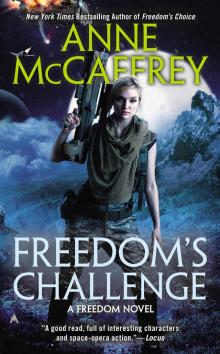 Freedom's Challenge
Freedom's Challenge